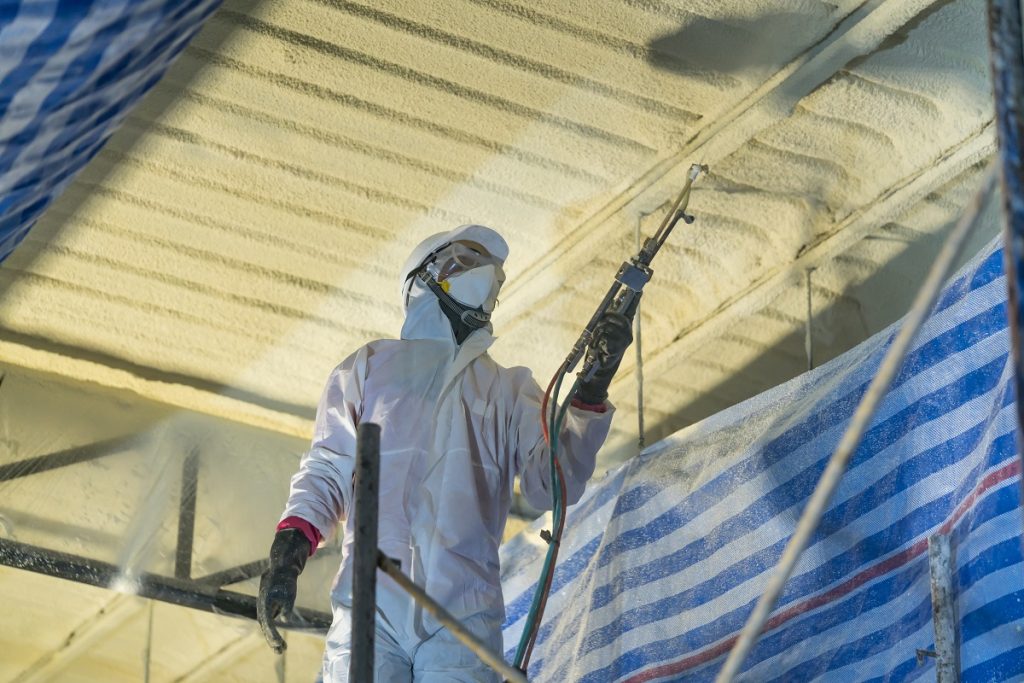- Poor home insulation can increase energy bills, pose health risks, decrease home value, and harm the environment.
- Proper insulation saves money, enhances comfort, and protects the home against outdoor elements.
- Home sidings and window treatments can significantly improve a home’s insulation and reduce energy costs.
- Older homes may benefit from insulation upgrades, as they are likely not insulated to current standards.
- Energy-efficient appliances can reduce energy consumption, improving overall insulation and environmental sustainability.
Your home is your haven. The place where you can relax, unwind, and enjoy quality time with your friends and family. It’s where you eat, sleep, and create memories. But did you know that poor home insulation can significantly impact your life and wallet? From increased energy bills to health risks, there are many reasons why you should take insulation seriously. Here’s a look into the average temperature in the country, how home insulation can affect your life, and ways to improve it.
Average Temperature in The U.S.
The average temperature in the country is around 70 degrees Fahrenheit (21 degrees Celsius). However, this varies from state to state. For example, Florida has an average temperature of 79°F (26°C), while Wyoming has an average temperature of 51°F (11°C). So, your home must accommodate various temperatures depending on where you live.
Impact of Poor Home Insulation on Your Life
Poor home insulation can have a significant impact on your day-to-day life. Here are ways poor insulation can affect your life:
1. Increased Energy Bills
One of the main reasons why poor insulation is a problem is that it can cause your energy bills to skyrocket. Poor insulation means that your home will lose heat in the winter and cool air in the summer, resulting in a higher utility bill. By investing in proper insulation, you can save yourself money on your energy bills and enjoy a more comfortable home.

2. Health Risks
Poor insulation can also pose a risk to your health. Leaks in your roof, walls, or attic can result in mold growth, exposing you and your family to harmful allergens, toxins, and even respiratory problems. Insulation can also help to make your home more resistant to pests that can cause significant health problems, such as rodents and insects.
3. Decreased Home Value
Poor home insulation can also hurt the value of your property. A poorly insulated home will not only be more expensive to run and maintain, but it can also be more challenging to sell in the future. Homebuyers are looking for comfortable, energy-efficient homes, and if your home doesn’t meet those requirements, it could impact your resale value. Insulation is a key factor in your home’s value and comfort.
4. Environmental Impact
Lastly, it’s important to remember that poor home insulation can significantly impact the environment. When your HVAC system works harder to maintain a comfortable temperature, more electricity is used, and more carbon emissions are released into the atmosphere. By investing in proper insulation, you can help to reduce your carbon footprint and protect the planet.
5. Solutions to Poor Insulation
So, what can you do to prevent poor insulation? The answer is simple: investing in proper insulation. This can include insulating your attic, roof, walls, and floors. Different insulation options, such as spray foam, fiberglass, and cellulose insulation, are available to suit various budgets and needs. Working with a reputable and experienced insulation company ensures your home is adequately insulated and protected.
Ways to Improve Insulation
There are various ways you can improve your home’s insulation. Here are four ways:
Home Sidings
The sidings of your home play a significant role in its insulation. Vinyl sidings, for example, are highly effective in reducing energy costs and providing an extra layer of protection against outdoor elements. You can hire an experienced home siding contractor to help you out. They can help you choose the right type of siding for your home and ensure it’s properly installed.

Window Treatments
Window treatments, such as blinds, shades, shutters, and curtains, can help reduce air leakage in your home and boost the efficiency of your HVAC system. They also offer privacy and block out harmful UV rays. Plus, they come in various colors, styles, and fabrics so that you can find the perfect fit for your home.
Insulation Upgrades
Investing in insulation upgrades is another way to improve your home’s insulation. If your windows, doors, walls, or roofs are older than 15, they’re likely not insulated to current standards. Working with an experienced contractor can help you determine what insulation upgrades your home needs and the best action.
Energy-Efficient Appliances
Investing in energy-efficient appliances can also help reduce your energy consumption and improve insulation in your home. These appliances, such as heat pumps and air conditioners, are designed to consume less electricity while providing optimal performance.
Your home is more than just a place to live; it’s an investment in your future. Ensuring it is well-insulated enhances your comfort and safety and contributes to its value and environmental sustainability. From reducing energy bills to protecting your health and increasing your property’s value, sound insulation is an indispensable aspect of home ownership. Remember, insulation upgrades are not a cost but an investment. Protect your haven, save money, and contribute to a healthier environment by reinforcing your home’s insulation.

